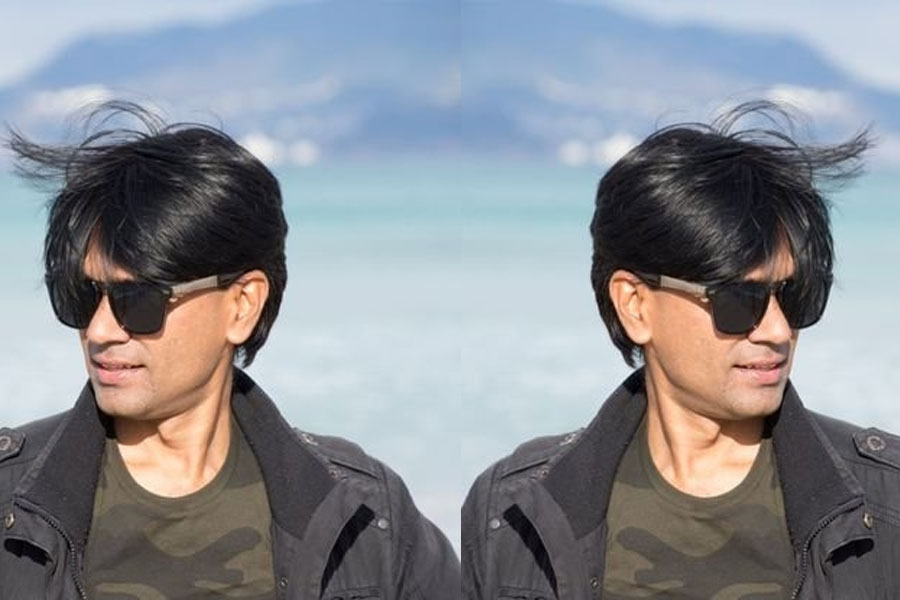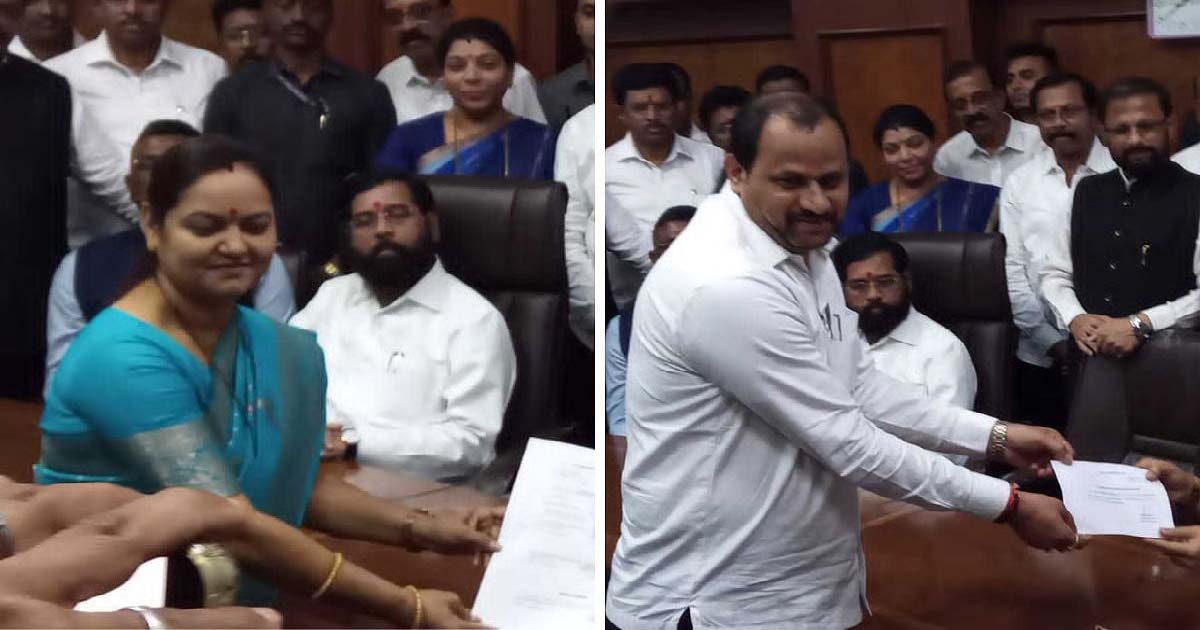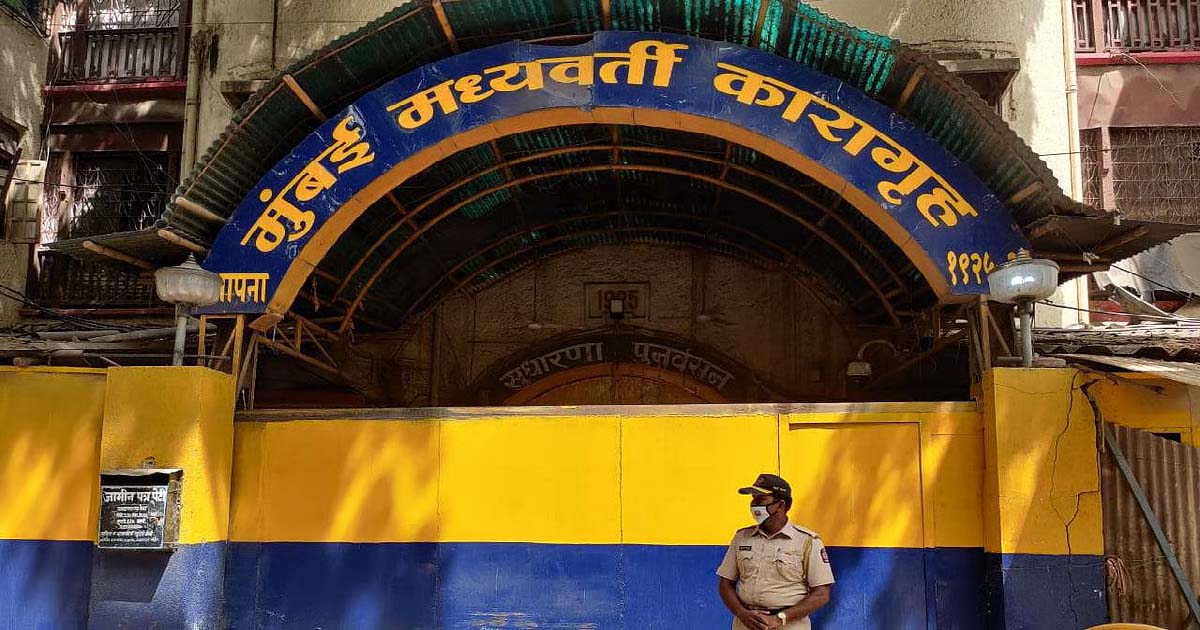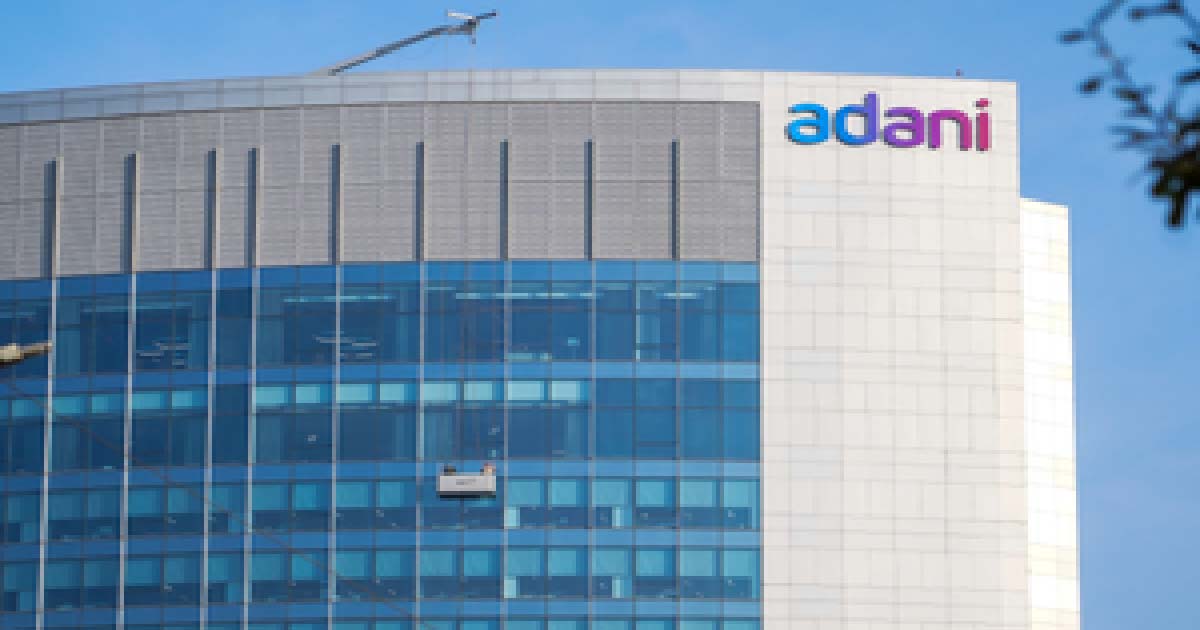National News
‘Travelled to Saudi Arabia, foreign contribution from inimical countries’: Zubair under lens of security agencies

Mohammed Zubair, who claimed to have chased facts, has been under spotlight following his arrest in connection with his controversial tweets.
According to security agencies, Zubair, a resident of Bengaluru and holding a Bachelor of Engineering degree in telecom engineering from private M.S. Ramaiah Institute of Technology (MSRIT), has travelled to Saudi Arabia and Australia.
On two separate occasions, the UP government had vehemently opposed Zubair’s bail in connection with FIRs registered in UP. On July 8, Solicitor General Tushar Mehta, representing the Uttar Pradesh government, told the Supreme Court that the matter is not about a single tweet by Zubair, but rather whether he is part of a syndicate which puts out tweets to destabilize the society.
Mehta further added that in a separate case registered by the Delhi Police, Zubair was under investigation because his company has received foreign contributions from countries, which are inimical to India. He said Zubair’s tweet at a particular time created a law-and-order situation, which is under investigation and “there is something more to it than meets the eye”.
He emphasised that the matter is not of a single tweet, instead his overall conduct is under investigation and added that Zubair is a habitual offender and there are six cases against him in UP.
However, the top court granted an interim bail for 5 days to Zubair in connection with a case registered against him by the UP Police for a tweet, where he allegedly called Hindu seers hatemongers.
Twelve days later, Uttar Pradesh’s Additional Advocate General Garima Prasad contended in the Supreme Court that Zubair is a person who, instead of informing the police of hate speech, has been taking advantage of speeches and videos having potential of creating a communal divide and he had shared them repeatedly.
Counsel claimed his tweets are meant to inflame communal violence, which actually took place, in certain localities of Uttar Pradesh, where videos of crimes were used along with comments to incite communal elements to indulge in violence.
However, the Supreme Court said there is “absolutely no justification” in subjecting Zubair to endless custody for his tweets, as it granted interim bail to him in six criminal cases registered against him in UP and ordered his immediate release from jail.
During arguments in the apex court, the top court identified Zubair as a journalist, while Prasad argued that he was not a journalist and sought directions to restrain him from tweeting.
Refusing to restrain Zubair from tweeting, Justice D.Y. Chandrachud said “It is like telling a lawyer that you should not argue. How can we tell a journalist that he will not write?….” As
Prasad reiterated, “He is not a journalist…”, Justice Chandrachud added that if he violates any law by tweeting, then the authorities can proceed against him as per law.
Zubair has a family with a wife, kids, and parents. He completed his engineering degree in 2005. He then joined Airtel Enterprises in Bengaluru as an engineer for two years. He then worked in CISCO-HCL company for one year before joining Nokia-Siemens Network in 2008 and travelled the entire country including all big metros as part of his job. Zubair worked for the NSN for a decade and met Pravda Media Foundation Director Pratik Sinha and his mother Nirjhari Sinha in 2015.
Pratik Sinha’s father Mukul Sinha ran a campaign against then Gujarat CM Narendra Modi over Gujarat riots. It was after this meeting that Zubair and Pravada Foundation joined hands to set up Alt News by as a fact checking website. The UP state counsel on Wednesday told the apex court that Zubair has earned more than Rs 2 crore for his malicious tweets and is not a journalist. Zubair had moved the top court seeking interim bail in six FIRs registered in UP over his tweets.
National News
Shinde Sena’s Sharmila Pimpolkar Set To Become Thane Mayor, BJP’s Krishna Patil Deputy Mayor; Both Elected Unopposed

Thane: Sharmila Rohit Pimpolkar of the Shiv Sena (Shinde faction) is set to be appointed as the Mayor of the Thane Municipal Corporation (TMC), while Krishna Dadu Patil of the Bharatiya Janata Party (BJP) will assume charge as the Deputy Mayor. Both leaders were elected unopposed after filing their nominations on the final day for submitting nomination papers for the mayoral posts.
Pimpolkar filed her nomination for the Mayor’s post, while Patil submitted his papers for the Deputy Mayor’s position. No other candidates entered the fray for either post, clearing the way for their unopposed election. The official announcement confirming their appointments is scheduled to be made on February 3.
A meeting related to the mayoral election process was held at the Thane Municipal Corporation headquarters in the presence of Deputy Chief Minister Eknath Shinde. Several senior leaders attended the meeting, including Transport Minister Pratap Sarnaik, Thane MP Naresh Mhaske, BJP MLA Niranjan Davkhare, Ravindra Phatak and other party functionaries.
Meanwhile, reports indicated that the Shinde Sena has categorically refused the BJP’s demand to rotate the Mayor’s post for two years in Thane. In the recently concluded Thane Municipal Corporation elections, the Shinde Sena emerged as the dominant force with 75 seats, while the BJP secured 28 seats. Citing its clear numerical strength, the Shiv Sena has reportedly conveyed at the local level that it will not hand over the Mayor’s post to the BJP even for a year.
Following the refusal, BJP leaders are said to have staked claim to key power centres within the civic body, including the Standing Committee, Transport Committee, various subject committees, ward committees and the Education Board. Shinde Sena reportedly proposed that the BJP accept the Deputy Mayor’s post, while committees and ward panels could be shared between the two parties for fixed tenures of three and two years respectively.
Crime
Mumbai Crime: Undertrial Prisoner Assaults Policeman Inside Arthur Road Jail, Case Registered

Mumbai: A shocking incident has come to light from Mumbai’s Arthur Road Jail, where an undertrial prisoner allegedly assaulted a police constable on duty.
The accused, Lokendra Uday Singh Rawat (35), is reported to have headbutted Police Constable Hani Baburao Wagh (30), causing injuries to his nose, and also abused and pushed other on-duty police personnel. A case has been registered in this connection at the N. M. Joshi Marg police station.
According to the FIR, the complainant, Police Constable Wagh, is attached to Armed Police Division–2, Tardeo. On January 27, he reported for his 24-hour day-duty shift at Arthur Road Jail at around 8 am and was assigned security duty at the main entrance of the prison.
At around 9 pm, Armed Police Constables Suresh Sandu Mali and Sachin Chavan brought undertrial Lokendra Rawat back to the jail after producing him before the Dindoshi Court. Rawat allegedly appeared agitated and, after entering the jail premises, sat near the gate and began verbally abusing the police personnel on duty.
Constable Wagh asked Rawat to calm down and refrain from using abusive language. However, Rawat allegedly became more aggressive and continued shouting abuses. When Wagh approached him again to pacify the situation, Rawat suddenly headbutted him on the nose with force.
As a result, Constable Wagh sustained injuries and started bleeding. Fellow constables Sachin Chavan and Suresh Mali immediately intervened, restrained the accused, and informed the on-duty prison authorities about the incident. Rawat was subsequently sent for medical examination to Sir J.J. Hospital.
After receiving medical treatment, the injured constable lodged a formal complaint on January 28 at the N. M. Joshi Marg police station. Based on the complaint, police have registered a case against the undertrial under relevant sections of the Bharatiya Nyaya Sanhita (BNS). Further investigation is ongoing.
Business
JCRA assigns landmark ratings to Adani Ports, Adani Green and Adani Energy Solutions

Ahmedabad, Jan 30: In a significant milestone for the Adani Group’s global credit journey, Japan Credit Rating Agency (JCRA) has initiated ratings of three Portfolio companies — Adani Ports and SEZ (APSEZ), Adani Green Energy Ltd. (AGEL) and Adani Energy Solutions Ltd. (AESL) — assigning long-term foreign currency credit ratings with a ‘Stable’ outlook to all three companies, it was announced on Friday.
Japan’s leading rating agency assigned Adani Ports and Special Economic Zone Ltd. (APSEZ) a A- (Stable) rating, representing a rare breach of the sovereign threshold by an Indian corporate by an international rating agency.
Moreover, Adani Green Energy Ltd. (AGEL) and Adani Energy Solutions Ltd. (AESL) have each been rated BBB+ (Stable). These ratings are at par with India’s sovereign rating of BBB+.
“These landmark ratings reflect the Adani Group’s commitment to disciplined financial management, strengthening balance sheet fundamentals, and world-class execution across our diversified infrastructure platform,” said Jugeshinder Singh, Group CFO, Adani Group.
“They reaffirm the depth and resilience of our business model and reflect the confidence global lenders, institutional investors, and capital markets place in our long-term strategy. This endorsement further strengthens our position as a leading partner in India’s infrastructure buildout and reinforces our commitment to delivering sustainable, high-quality growth,” Singh added.
Adani Ports’ strong rating underlines its strong credit profile, diversified asset base, and resilient cash-flow generation, and places it among a select group of Indian infrastructure companies to achieve an above-sovereign rating from a leading international rating agency.
The ratings also mark one of the first instances of Indian infrastructure platforms being assessed by JCRA at these levels, highlighting the Adani Group’s growing engagement with global rating agencies and its increasing alignment with international credit benchmarks.
APSEZ’s creditworthiness is at par with its subsidiary group, said the ratings agency, citing its superior infrastructure capabilities, consistently strong profitability, stable long-term cash flows, and prudent financial management — positioning the company above India’s sovereign foreign-currency rating, though capped by the country ceiling.
It continues to reinforce its leadership through a diversified portfolio of 15 domestic and 4 international ports, handling nearly 30 per cent of India’s cargo and 50 per cent of container volumes, supported by a comprehensive four-segment integrated logistics platform spanning ports, SEZs, logistics, and marine services.
Adani Ports delivered rapid EBITDA expansion — from Rs 7,566 crore in FY20 to Rs 19,025 crore in FY25, and Rs 11,046 crore in H1 FY26 — while maintaining a conservative 1.8x net-debt-to-EBITDA, long-tenor funding structure, and strong liquidity position.
On the other hand, AESL continues to strengthen India’s energy backbone through rapid expansion in transmission, distribution, smart metering, and cooling solutions — backed by stable, regulated cash flows and strong governance that support its consolidated credit profile, said the ratings agency.
“With a fast-growing network of 26,705 ckm of transmission lines, 97,236 MVA capacity, award-winning distribution reliability, and a rapidly expanding 7.37 million-meter smart metering portfolio, AESL is delivering far superior growth to the sector and redefining benchmarks in efficiency, customer service, and operational performance,” it noted.
With over 16.7 GW of operational capacity as of September 2025 and more than 90 per cent of EBITDA generated from renewables, AGEL has rapidly expanded from just 2.5 GW in FY20 — supported by best-in-class development, superior plant load factors, cost efficiency, and advanced ENOC-driven operations.
“EBITDA growth from Rs 1,855 crore (FY20) to Rs 10,532 crore (FY25) and Rs 6,324 crore in H1 FY26, coupled with improved equity levels, diversified global funding access, and extended 9.4-year average debt maturity, positions AGEL to sustain its ambitious growth pipeline while maintaining financial stability,” said JCRA.
-

 Crime3 years ago
Crime3 years agoClass 10 student jumps to death in Jaipur
-

 Maharashtra1 year ago
Maharashtra1 year agoMumbai Local Train Update: Central Railway’s New Timetable Comes Into Effect; Check Full List Of Revised Timings & Stations
-

 Maharashtra1 year ago
Maharashtra1 year agoMumbai To Go Toll-Free Tonight! Maharashtra Govt Announces Complete Toll Waiver For Light Motor Vehicles At All 5 Entry Points Of City
-

 Maharashtra1 year ago
Maharashtra1 year agoFalse photo of Imtiaz Jaleel’s rally, exposing the fooling conspiracy
-

 National News1 year ago
National News1 year agoMinistry of Railways rolls out Special Drive 4.0 with focus on digitisation, cleanliness, inclusiveness and grievance redressal
-

 Maharashtra1 year ago
Maharashtra1 year agoMaharashtra Elections 2024: Mumbai Metro & BEST Services Extended Till Midnight On Voting Day
-

 National News1 year ago
National News1 year agoJ&K: 4 Jawans Killed, 28 Injured After Bus Carrying BSF Personnel For Poll Duty Falls Into Gorge In Budgam; Terrifying Visuals Surface
-

 Crime1 year ago
Crime1 year agoBaba Siddique Murder: Mumbai Police Unable To Get Lawrence Bishnoi Custody Due To Home Ministry Order, Says Report




















